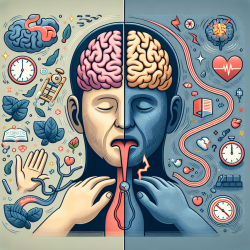The Building Emotional Awareness and Mental Health (BEAM) study offers valuable insights into the efficacy of digital mental health interventions for mothers of infants. As practitioners in the field of online therapy, it is crucial to stay informed about the latest research to enhance our skills and provide the best care for our clients. This blog will delve into the outcomes of the BEAM study and how practitioners can implement these findings to improve their online therapy services.
Understanding the BEAM Study
The BEAM study, conducted as an open-pilot and feasibility trial, investigated the effectiveness of a 10-week app-based mental health and parenting program. The study targeted mothers with clinically elevated depression scores who had infants aged 6-17 months. The program included weekly video sessions on mental health and parenting, a peer support forum, and weekly e-health group therapy sessions.
Key Findings from the BEAM Study
The study yielded promising results, indicating significant reductions in maternal depression, anxiety, and parenting stress. Here are some key findings:
- Participants reported a significant decrease in depression symptoms (Cohen’s d = .93).
- There was a notable reduction in parenting stress (Cohen’s d = .63).
- Maternal anxiety symptoms also showed significant improvement (Cohen’s d = .58).
- Child internalizing symptoms were reduced (Cohen’s d = .51).
Implementing BEAM Study Outcomes in Online Therapy
Practitioners can leverage these findings to enhance their online therapy services in several ways:
1. Integrating Digital Tools
The BEAM study underscores the potential of app-based interventions. Incorporating digital tools into your therapy practice can provide clients with accessible and flexible support. Consider using apps that offer mental health and parenting psychoeducation, similar to the BEAM program.
2. Emphasizing Peer Support
Peer support was a crucial component of the BEAM program, contributing to participants' engagement and satisfaction. Creating online forums or support groups where clients can connect with peers can enhance their therapy experience and provide additional emotional support.
3. Offering Group Therapy Sessions
The weekly e-health group therapy sessions in the BEAM study facilitated discussions and a sense of community among participants. Incorporating group therapy sessions into your practice can help clients feel less isolated and more supported.
4. Monitoring Engagement and Retention
The BEAM study faced challenges with participant retention and engagement. To address this, ensure that your digital interventions are user-friendly and provide regular reminders and check-ins to keep clients engaged.
Encouraging Further Research
While the BEAM study provides valuable insights, further research is necessary to refine and optimize digital mental health interventions. Practitioners are encouraged to stay updated with ongoing research and consider participating in studies to contribute to the growing body of knowledge in this field.
Conclusion
The BEAM study highlights the potential of digital mental health and parenting interventions to improve maternal mental health and reduce parenting stress. By integrating digital tools, emphasizing peer support, offering group therapy sessions, and monitoring engagement, practitioners can enhance their online therapy services. To read the original research paper, please follow this link:
Building Emotional Awareness and Mental Health (BEAM): an open-pilot and feasibility study of a digital mental health and parenting intervention for mothers of infants.










